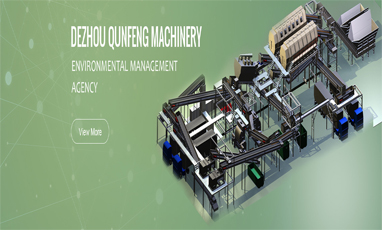How to sort the waste appropriately?
Waste sorting is an easy procedure that requires neither a lot of time nor any type of special resources. While sorting waste, the key is to divide from family waste the kinds of waste that can be recycled. The waste sorting supplier recommends splitting the complete waste stream into the complying with groups:
Product packaging materials (plastic, glass, paper/ cardboard);.
Metal;
Batteries;
Electric devices;
Ecologically contaminated materials;
Medical waste;
Biodegradable waste;
Recyclable points;
Bulky waste and also building and construction waste;
Home waste not ideal for recycling.
These are primarily empty ANIMAL bottles, containers, boxes, movies, and also bags.
How to collect: prepare for recycling by washing and eliminating the pollutants, such as food residues, flattening as long as feasible.
Ideal for recycling: squashed plastic drink bottles, plastic bags, film, plastic boxes.
Not ideal for recycling: dirty plastic items, oil containers, yogurt, sour cream or margarine containers, playthings, family items, household products.
They are all sorts of glass jars, containers, bottles.
Just how to collect: prepare for reusing by washing as well as getting rid of the pollutants, such as food deposits.
Appropriate for reusing: glass jars, bottles, home window glass.
Not appropriate for recycling: mirror glass, car glass, oil containers, balsam bottles (of clay).
They are all paper product packaging, cardboard, papers, publications, books, notepaper, egg boxes, as well as other paper/ cardboard items.
How to accumulate: get ready for reusing by eliminating the contaminations and also flattening as high as possible.
Ideal for reusing: newspaper, cardboard, composing the paper, publications, unsorted paper, all types of paper/ cardboard products, also stapled.
Not ideal for reusing: paper and cardboard that is wet, dirty, having food contaminations are laminated flooring.
These are all sorts of metal products, and also metal packagings such as canisters or tins.
Just how to collect: get ready for recycling by removing pollutants such as food deposits, flattening them to possible levels.
Ideal for reusing: all sorts of steel products devoid of pollutants.
Not ideal for recycling: greasy, filthy metal packages.
They are all kinds of batteries and also collectors of various electric tools.
How to collect: gathered independently from various other waste, avoiding wetness.
Suitable for recycling: any type of batteries as well as rechargeable batteries, and also batteries that have actually leaked.
They are any kind of (huge or small) electric and also electronic gadgets that are operated by a power source.
How to accumulate: plan for recycling by detaching from the power supply. Prior to ditching, it shall not be disassembled aside.
Ideal for reusing: any type of kind of electrical device.
They are waste commercial oils, oil filters, made use of automobile tires.
How to accumulate: accumulate in specialized containers provided by the manager of environmentally dangerous products on a contract basis. Tires are collected without any special rules.
Suitable for recycling: environmentally hazardous waste without pollutants.
It is any type of medicine, which has actually run out.
Exactly how to collect: gather in a different bag. Ensure that bottles are securely secured.
Ideal for disposal: any kind of medicine, which has actually expired or, which is no more made use of.
Do not: Wash medicine down the sewer system, or give away extra medicine to others.
They are any waste of all-natural origin - fruit and vegetable leftovers, egg coverings, biopolymers packaging, also damp paper waste.
How to collect: collect in a different container getting ready for composting.
Not ideal for composting: dairy and also meat items leftovers, which during the disintegration will distribute an unpleasant smell as well as promote bacterial development.
They are apparel, footwear, house products, textiles, furniture, and also various other points that can be recycled.
Where to provide: donate to charity, the Red Cross or orphanages, houses for the elderly. Old blankets as well as worn clothing will offer pet sanctuaries.
They are old as well as broken-down covering of soft furniture, any kind of redecoration waste.

Every little thing else that might not be identified to any one of the recyclable product teams is family waste. It is brought to a routine unsorted waste container - it will be saved in a waste site and also will not be reused.